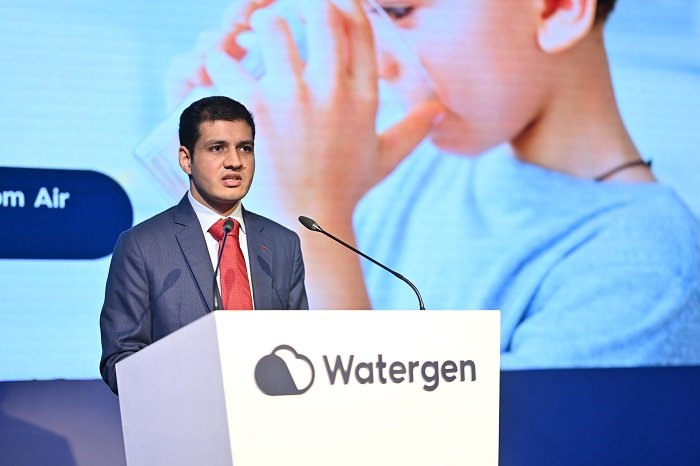By Chaitanya Jaipuria
Sustainability is a constantly evolving concept. However, it is important that we now start focussing on making it a habit. Sustainable lifestyle has been receiving excessive attention as a result of growing concerns about the effects of human activity on the environment which is further leading to the scarcity of natural resources. As a result, there has been a shift toward sustainable practices in a wide range of industries, including energy, transportation, food systems, infrastructure, and other businesses.
Globally, nations are diverting an increasing emphasis on sustainability, followed by the growing awareness of the environmental consequences of human interaction and the finite nature of natural resources being one of the primary motivators. As a result, United Nations’ Sustainable Development goals have clearly mentioned the need to work as a team to ‘Ensure availability and sustainable management of water and sanitation for all’. Especially in India, where the population is expected to exceed 1.5 billion by 2030, it is essential for the country to adopt sustainable practices to ensure that resources are managed responsibly. Sustainability is the key to India’s future, and will help the country conserve its natural resources, reduce pollution, and protect the environment.
Sustainable practices to lookout for in 2023
The rising demand for sustainable goods, services, and practices as well as consumer awareness are driving the emergence of sustainability trends. The value that sustainability can bring to their operations and the significance of it are becoming increasingly apparent to businesses. The following are some of the upcoming sustainability trends: reducing waste and emissions, investing in renewable energy, tapping into new sources for water, adhering to the principles of the circular economy, utilising environmentally friendly materials, and employing practices that are socially responsible businesses are also putting a greater emphasis on corporate social responsibility and using technology to measure sustainability performance and deal with crucial issues like the drinking water crisis.
There are a number of sustainability trends that have been gaining popularity in recent years. Some of these trends include:
Technology Innovations Changing the Face of Potable Water Conservation
According to the World Health Organization, more than 2.5 billion people do not have access to safe, clean drinking water in their neighbourhoods. With 50% of the population lacking access to safe drinking water throughout the year, India itself is dealing with a serious water crisis. Water crisis is a problem that’s grappling the nation and is expected to worsen over time. With the use of new technologies, businesses are actively collaborating to create pure, fresh, and safe drinking water from more easily accessible resources, such as air. One of them is Atmospheric Water Generators or AWGs, machines that create drinking ‘Water from Air’. The technology takes the air from surroundings, purifies it and then converts humidity in the air to create fresh, clean and safe drinking water.
Circular economy
There has been a growing focus on the development of systems that promote the reuse and recycling of resources, rather than a linear model of production and disposal. Taking a step further to promote renewable and circular economies, new age companies are providing a sustainable drinking solution that will be providing fresh, high quality, mineralized & safe drinking water created from air to everyone. These new age companies are creating drinking water from the air using innovative technologies. Their solutions are the most effective and economical way to solve the pressing issue of drinking water scarcity in any location and during any time, and also enables the elimination of carbon-intensive supply chains and environmentally harmful plastic waste.
Renewable energy
There has been a growing focus on the use of renewable energy sources, such as solar and wind power, as a way to reduce our reliance on fossil fuels and mitigate the impacts of climate change. India recently made a commitment at the G20 summit to combat climate change and cut carbon emissions, promising to achieve net zero emissions by 2070 and to cover half of its energy needs through renewable sources by 2030. Due to historically high spending patterns, the nation should keep concentrating on climate funding, technology transfer, and emission reductions.
Sustainable food systems
There has been a growing interest in plant-based diets and local, organic food production as a way to reduce the environmental impacts of the food industry. The lack of access to food and nutrition is one of the most pressing issues in the world today. It is acknowledged that reaching zero hunger and nutrition security depends on the development of sustainable food systems. Promoting agro ecologically sound methods like integrated nutrient supply and pest control, precision farming, conservation agriculture, and conservation forestry can help bring about the evergreen revolution. For instance, Sikkim’s organic farming and Andhra Pradesh’s community-managed natural farming can be promoted internationally.
Tapping into already available means to create drinking water
Water from air might sound unachievable but with the help of Atmospheric Water Generators (AWGs), it is possible. Air is a source which is readily available, yet it remains untapped. Now, using advanced technology, companies are creating large quantities of safe and drinking water. This development is completely in line with the UN’s SDGs designed to serve as a “shared blueprint for peace and prosperity for people and the planet now and into the future”.
Way forward
More and more companies today are taking steps to reduce their environmental impacts and improve their social and ethical practices. This includes initiatives such as reducing greenhouse gas emissions, conserving water, and supporting local communities.
Overall, the evolution of sustainability is being driven by a combination of environmental, social, and economic factors, and it is likely to continue to be an important issue in the coming years as we work to create a more sustainable future.
(Authored by Chaitanya Jaipuria, Director, Watergen India)







